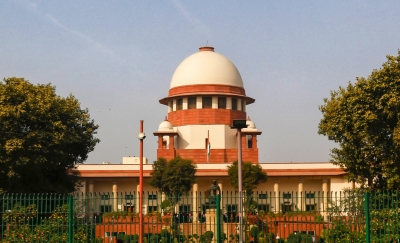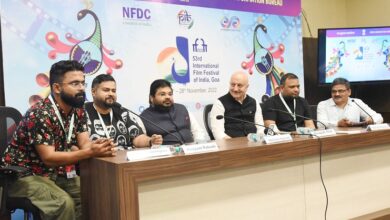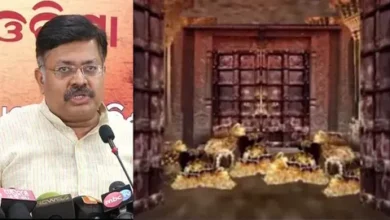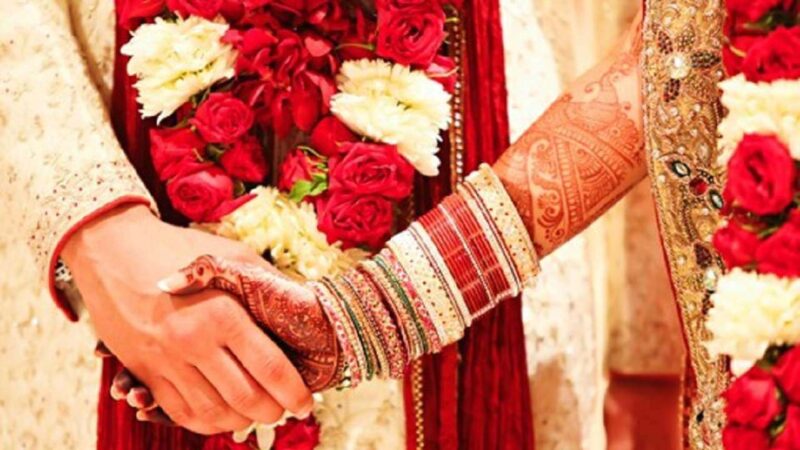
New Delhi, Aug 13 : A Constitution Bench of the Supreme Court headed by Chief Justice of India DY Chandrachud is consecutively hearing a batch of pleas challenging abrogation of Article 370 of the Constitution from August 2, except on Mondays and Fridays.
The Constitution Bench comprises the five senior-most judges of the apex court, namely CJI DY Chandrachud, Justices Sanjay Kishan Kaul, Sanjiv Khanna, B.R. Gavai, and Surya Kant.
A large number of petitions have been filed by political parties, private individuals, lawyers, activists, challenging the presidential order stripping the erstwhile state of Jammu and Kashmir of its special status and the action of Parliament splitting it into two Union Territories.
So far, the main thrust of their argument has been that Article 370 of the Constitution has assumed a permanent nature after the dissolution of the constituent assembly of J&K.
During the hearing, the Constitution Bench has repeatedly cast doubt on this permanence and at an instance, has remarked that “it is difficult to say that Article 370 is permanent and can never be abrogated.” It asked the petitioner side to contemplate a scenario where the erstwhile state itself wanted application of all provisions of the Indian Constitution to its territory.
Secondly, it has been argued that the concept of federalism inbuilt in Article 370 cannot be abrogated by any action of the President or Parliament.
The Constitution Bench has orally remarked that surrender of sovereignty of Jammu and Kashmir to India was not conditional but an “absolutely complete” surrender vesting exclusive sovereignty with India.
CJI Chandrachud has said that provisions of the Constitution requiring concurrence with the States does not necessarily undermine the sovereignty of the Union of India.
As a matter of fact, the Constitution of Jammu and Kashmir itself provided that the State of Jammu and Kashmir is and shall be an integral part of the Union of India.
Similarly, Article 1 of the Constitution says that India shall be ‘a Union of States’ and it includes the state of Jammu and Kashmir in Schedule I of the Constitution.
Senior advocate Kapil Sibal, appearing for J&K political leader Akbar Lone, at the very outset of the hearing had submitted that integration of Jammu & Kashmir with India “is unquestionable, was unquestionable and will always remain unquestionable”.
Sibal’s suggestion referring to a Brexit-like referendum did not go down well and was frowned upon by the Constitution Bench and by the public at large, outside the courtroom.
Another line of argument raised before the apex court is that the Jammu and Kashmir Constitution of 1957 had no provision providing for alteration of the special status of Jammu and Kashmir.
Though, the petitioners have themselves conceded before the Supreme Court that of course, the Indian Constitution is superior between the two Constitutions.
But, the petitioners have urged before the Constitution Bench that the basic structure has to be deduced from both the Constitution of India as well as of J&K.
The issue as to assumption of the role of the state legislature by Parliament to recommend truncation of Article 370 and division of the state into two Union Territories has been vehemently raised before the Supreme Court.
It has been contended that there exists a difference between “constituent power” and “legislative power” and a Legislative Assembly cannot be converted into a Constituent Assembly.
The petitioners have cautioned that an interpretation equating the two, will have a dangerous effect. “Tomorrow, the Parliament can say that we are the Constituent Assembly. They can do away with basic structure,” Sibal argued before the Constitution Bench, contemplating a situation where Parliament converts itself into a Constituent Assembly.
“Forget about this case, I’m worried about our future,” he added.
The above submission got weightage as CJI Chandrachud has remarked that Parliament amends the Constitution, not in exercise of its power of the Constituent Assembly, though it is exercising a constituent power i.e. the power to amend, but within the contours provided within the Constitution.
The marginal note to Article 370 which reads as “temporary provisions with respect to the State of Jammu and Kashmir” has been an argument given by the Centre in support of its abrogation.
But, the petitioners have said this “temporary” plays a very minimal part in interpretation of a legal provision and referred to various past judgments of the Supreme Court.
They have said that it would be incorrect to say that clause (3) of Article 370 is otiose and reading Constituent Assembly as Legislative Assembly would amount to an amendment in Article 370 (d) of the Constitution, though inserted through an interpretation provision by the President.
In summary, the petitioners have maintained before the Supreme Court that the procedure adopted by the Centre to abrogate Article 370 is completely “unknown to law”.
The Supreme Court will continue to hear the oral arguments on behalf of the petitioners at length, before the Centre is called for oral submissions to defend its action.
The Centre, which will present its case after oral arguments from the petitioners side are over, in it’s written submissions has defended the revocation of the special status saying that its decision to dilute Article 370 has brought unprecedented development, progress, security, and stability in the region.
The Union Home Ministry has submitted before the top court that street violence, engineered and orchestrated by terrorists and secessionist networks, has now become a thing of the past and and the “organised stone pelting incidences connected with terrorism-separatist agenda, which were as high as 1,767 in 2018 has come down to zero in 2023 till date”.
Earlier, another Constitution Bench had ruled against the necessity of referring the matter to a seven-judge bench.
The intervention applications filed by Kashmiri Pandits and their organisations in the matter, do not seem to stand on their independent legal legs but add a limb of support towards the side of the Centre.
The marathon proceedings before the Supreme Court are expected to definitely yield a historic decision in the constitutional landscape of the country.






